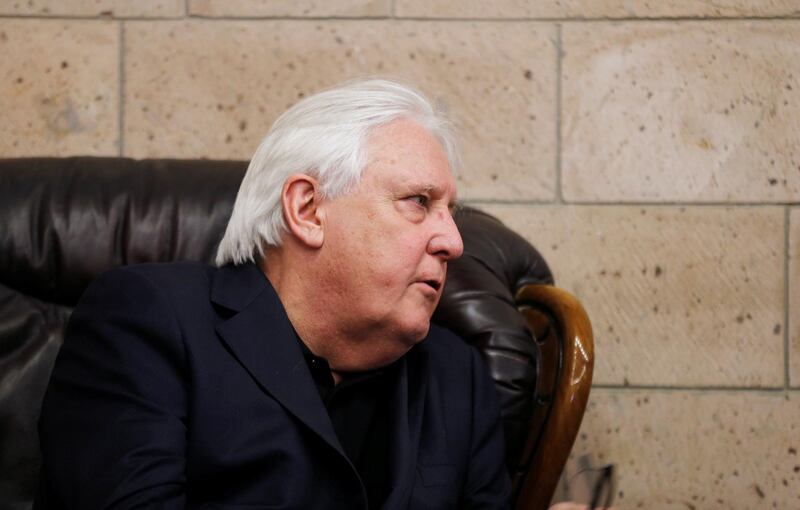The UN Yemen envoy Martin Griffiths said he expects to get Yemen's rebels and the government back to the negotiating table soon after both sides confirmed their willingness to talk.
"I’d like to get the parties together within the next few weeks at the very latest," Mr Griffiths said in a UN radio interview late on Thursday. "I’m hoping that the Security Council will meet next week and we’ll put a plan before them as to how we’re going to bring the talks back."
Mr Griffiths was speaking after meetings with President Abdrabu Mansur Hadi in Aden, the interim capital, and with Mohammed Abdul-Salam, chief negotiator of the Houthi rebels, in recent days.
"Both parties have confirmed to me their willingness to come to the table to restart negotiations. I think it's long overdue that that should take place. It’s been about two years since the last talks on Yemen," he said.
It was the first time Mr Griffiths has spoken publicly on his mediation efforts since government forces backed by the Saudi-led Arab Coalition launched an offensive on June 13 to retake Hodeidah and its port, the main entry point for Yemen's food and humanitarian aid.
He said it was "very clear to me from discussion with all the parties, including the coalition, that the solution to the issue of Hodeidah is tied up intrinsically with the restart of political negotiation."
The pro-government forces seized control of the airport south of Hodeidah after fierce clashes, but the fact there had been no major attack on the city or the port since then could be attributed to the UN's discussions with all the parties, Mr Griffiths said.
Talks were continuing with all sides to "narrow down" the conditions to avert an attack on Hodeidah, he said.
He said the rebels had offered the UN a lead role in managing the port if there was an overall ceasefire in the province. Both sides had accepted this but talks were continuing on how to completely avoid any attack, he said.
"At the moment we are still in negotiations as to whether a UN role would help to avoid an attack, and more importantly, and this is where I think we’re going, whether in fact the restart of negotiations will mean the attack on Hodeidah or the move towards war will be avoided."
_______________
Read more:
[ Arab Coalition: military pressure is bringing Houthis to negotiation table ]
[ Three killed as Houthis open fire on prisoners in Hodeidah ]
[ Pompeo: Iran's supreme leader bears blame for suffering in Yemen ]
_______________
Mr Griffiths said he expected to hold further talks with the Houthis in the next few days to clarify the schedule and details of peace negotiations.
He said it would be a massive task to disarm, demobilise and reintegrate the estimated one million Yemenis fighting in the three-year-old civil war, but this was the priority for ordinary Yemenis.
"The aim of the peace process I hope we can begin in the near future is to return to the state and government of Yemen a new government of national unity, the monopoly of force we consider normal in every other country," he said.





